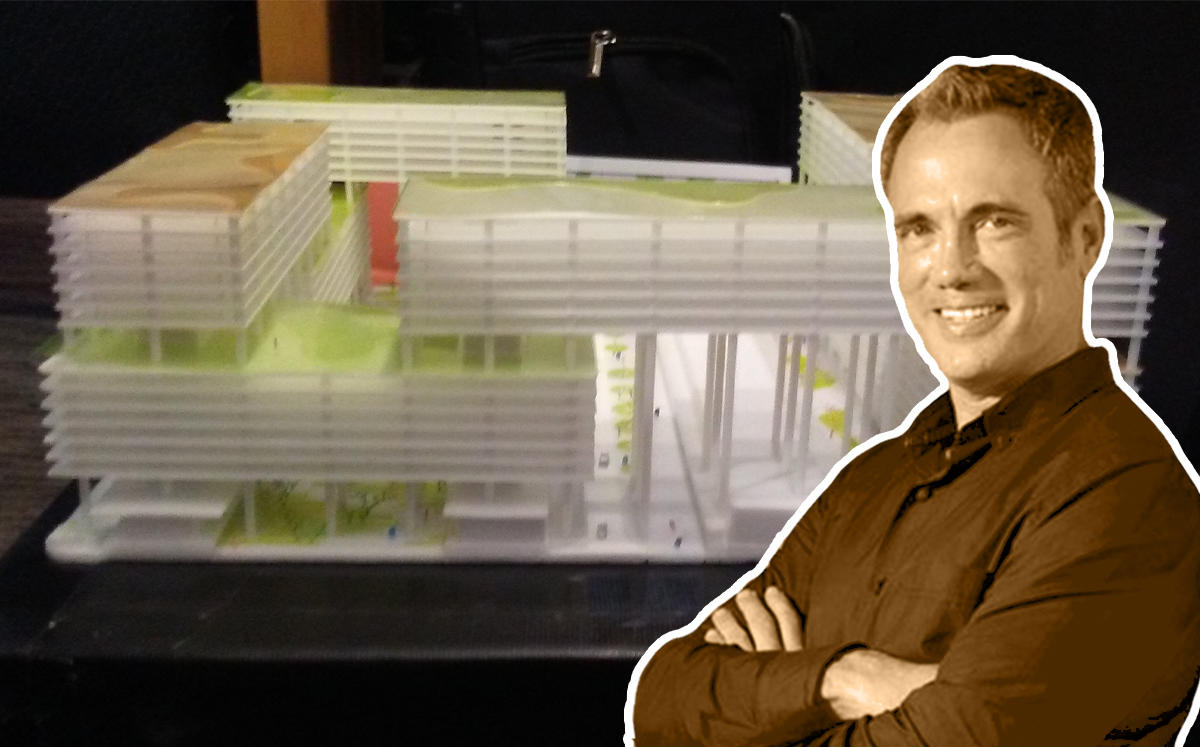Robert Wennett’s proposed massive mixed-use project in Allapattah, which could include the only co-living spaces currently allowed in Miami, is a step closer to becoming a reality.
Miami’s Planning, Zoning, and Appeals Board backed the development of the 1.4 million-square-foot project by a vote of 8-2 during a meeting Wednesday evening, despite some anxiety that it could speed up gentrification of Allapattah. The Miami Produce Special Area Plan, a 8.5-acre, mixed-use project at 2140 Northwest 12th Avenue, is proposed by Wennett and Jeff Weinstein, the same developers who built the landmark 1111 Lincoln Road building in South Beach.
Designed by the Bjarke Ingels Group, the Miami Produce SAP will repurpose three warehouses—now generally used as storage for fruit and vegetable wholesalers—as retail uses. There will also be four 20-story intertwined buildings as well as urban gardens where fruits and vegetables will be grown.
Once completed, the envisioned SAP will include 230,886 square feet of office space, 128,971 square feet of retail space, 22,176 square feet for “educational uses” and 1,094 parking spaces. The Miami Produce SAP still has to be approved by the Miami City Commission, which is expected to hear the proposed project in March or April.
Miami Produce will also mark the city’s only allowed co-living spaces—apartments with fully functioning bathrooms that share a kitchen with other units. If the zoning is approved by the Miami commission, as many as 2,400 co-living dwelling units as well as 637 regular residential units (apartments with kitchens and bathrooms) will be allowed, said Kevin Martin, a city of Miami planner. Should the developer not pursue co-living units, the proposed zoning will allow a total of 1,237 apartment units.
Weinstein said co-living units are being rolled out in other parts of the United States. “It’s being introduced in Los Angeles, in New York City, in San Francisco,” Weinstein said. “It has been quite successful when paired with education and transit.”
Weinstein told the board that a co-living space with a shared kitchen will have no more than five dwelling units.
Jeremy Calleros Gauger, deputy director of the city’s planning and zoning department, said co-living spaces is a means to “leverage” the number of affordable housing on site. “The market rate for these uses, being shared spaces, are in the bounds of affordable and workforce housing rates,” Gauger told the board.
Weinstein, however, cautioned that the rental rates for co-living spaces, as well as most of the one-, two-, and three-bedroom apartments, have yet to be set. “That will be determined by the market and timing,” he said.
Under the proposed development agreement with the city, 110 dwelling units will be reserved for workforce housing, or people who make between $31,740 and $74,000 a year. Of those 110 dwelling units, 80 are to be built in the project’s first phase. Those workforce housing units will not be co-living spaces, Martin said. Workforce housing rents will be on a sliding scale, he said. Individuals making $31,740 a year can rent a workforce housing unit for $849 a month while someone who makes $74,000 annually will be charged $1,982 a month.
But some residents and labor activists complained that even the workforce rents are far too expensive for Allapattah residents. Justin Trieger, vice president of the Allapattah Homeowners Association, said most people in Allapattah make just $23,000 a year. “Even a co-working unit that demands $2,000 a month is beyond the means of those who exist there now,” Trieger said.
Other critics of the project said the Miami Produce SAP will inflate property values even higher, jacking up rents and property taxes in the process. “I want assurances that our senior citizens are protected,” said Patrick Gajardo, president of the Allapattah Homeowners Association. “Many are living on Social Security checks.”
But Miami Produce supporters countered that rents are already expensive in Allapattah. “The [rent] prices in Allapattah are already at $3,000 [a month],” said Eileen Silio, the broker-owner of Act Fast Realty. “It’s already going into market rate.”
PZA board member Alex Dominguez, one of the two dissenting votes, complained that co-living spaces are a poor substitute for real affordable housing. Should the young millennial singles renting the co-living spaces ever have children, Dominguez predicted, they’ll move out of Allapattah. “It will be a fad that will come and go, and then the [units] will be redone as condos,” he said.
Miami Produce LLC, a company tied to Robert Wennett, paid $16 million for the 8.5-acre Miami Allapattah Produce Center in August 2016.
Besides Wennett, several other real estate investors and developers have bought property in Allapattah in recent years, including Moishe Mana, Jorge Pérez, the Rubell family, Michael Simkins, Lyle Stern and Lissette Calderon.
